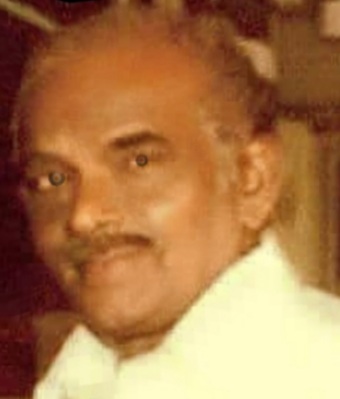N. Panchaksaramoorthy, a known face amongst the Advocates in the High Court of Madras. Who is even fondly called “Panchu Sir” by his fellow colleagues, clients, well-wishers and junior Advocates! Mr. Moorthy got his enrolment done in the Bar Council of Tamil Nadu & Puducherry in the year 1966 and since then he is into active practice. His Advocate Career spanning over five decades can never be written in an indelible ink, if not exaggerated, must be carved out in golden words. I still remember, in one of his felicitation ceremonies about 4 years ago, An Advocate confided – Mr. Moorthy conducted Cross Examination for one full day and the Speaker Advocate related that incident to Mr. Moorthy’s intellectual stamina on The Indian Evidence Act. Mr. Moorthy represented the State as Assistant Public Prosecutor and he thereafter started make use of his Law and Language [English] skills into writing. Mr. Moorthy was the Chief Editor with Madras Weekly Notes [Criminal] between 1989 and 1991 and authored several articles in law and other areas of social importance and those were widely published in the mainline media otherwise his articles in law were published in Madras Weekly Notes [Criminal], Madras Law Journal and Criminal Law Journal [Published from Nagpur].
We are fortunate to have Mr. Moorthy on board to write for our audiences on the subject – The Constitution of India – particularly touching those historical facts from the Constituent Assembly to the present day Constitution – which can never be forgotten – because on the very basis, we breathe our freedom of expression and receives all other freedom. It shall be a series of writings by Mr. Moorthy on various topics pertaining to Constitution.
COMMON CIVIL CODE in Chapter IV of The Constitution, the Directive Principles of State Policy have been incorporated from Article 36-51 containing a total number of 20.
In Article-44, the enactment of Uniform Civil Code for the Citizens have been incorporated and the nation is getting ready to meet this Constitutional challenge.
In the Constituent Assembly, Mr. Nazeeruddin Ahmed moved an additional provision as follows:-
“Provided that the personal law of any community which has been guaranteed by the statute shall not be changed except with the previous approval of the community ascertained in such a manner as a union legislature determined by law.”
This Amendment at the outset was not accepted for negative by the Assembly.
However, it is fruitful to quote the speech made by Mr. Nazeeruddin Ahmed, in the Constituent Assembly on 23 November 1948. He stated inter alia.
“But during the funds of the five years of British rule, they did not interfere with certain fundamental personal laws. They have enacted the Registration Act, Limitation Act, the Civil Procedure Code, the Penal Code, Evidence Act, the Transfer of Property Act, The Sarda Act and various other Acts. They have been imposed as occasions arose and they were intended to make the laws uniform, although a clash with the personal law of the particular community. I submit that the interference with these matters should be gradual and must progress with the advance of time. I have no doubt that the time and stage will come and the civil law would be uniform.”
Then, the time has not yet come. We believe that the power that has been given to the State would be justified under Article 35 to interfere the set in laws for the different communities at once.
The learned speaker further stated as follows:-
“I have attempted by my Amendment to leave it to the Central Legislature to decide how to ascertain this consent. I submit, Sir that this is not a matter of mere idealism. It is a question of stern reality, which we must not refused to face. And, I believe it will lead to a considerable amount of misunderstanding and resentment amongst the various section of the country. What the British in 175 years failed to do or was afraid to what the Muslims in the course of 500 years refrained from doing. We should not give the power to do all at once. I submit, Sir, that we should proceed not in haste and be caution with the experience, which statesmanship and with sympathy.”
Even after seven decades, a speech of the learned member holds good. Therefore, “we should not be in a hurry to bring about this legislation all of a sudden.”
This is not surprising that Amendment moved by learned speaker was negative (defeated). Therefore, let us move with caution.

